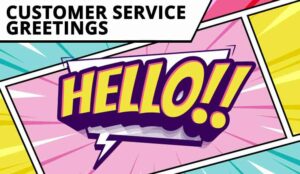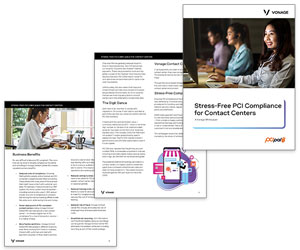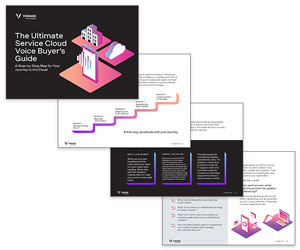The greeting “Dear Customer” is widely used in customer service, but does it really make customers feel valued? In reality, this generic phrase can come across as impersonal and disconnected.
A more thoughtful, personalised approach can strengthen customer relationships, build trust, and create a better overall experience. So, what should you say instead? Let’s explore the best alternatives to “Dear Valued Customer” and why they make a difference.
When Is “Dear Customer” Used?
Dear Customer is typically used in business communications. Many businesses prefer using it to the Dear Sir/Madam that can sound a little formal.
Here are some of the variants (or synonyms) that we have seen in use:
- Dear Customer
- Dear Sir
- Dear Sir/Madam
- Dear Valued Client
- Dear Esteemed Customer
- Dear Beloved Customer
- Dear Lovely Customer
- To all our Valued Customers
So, Which One Should You Use? None of Them!
8 Tips to Avoid Saying ‘Dear Valued Customer
Why? Although it might be tempting to update the phrase “Dear Valued Customer” with alternative words for valued, and there are lots of synonyms for valued – including appreciated, loved and, respected – it’s far better to take a different approach, as our readers explain below.
1. Use the Customer’s Name
If you are writing to a customer (for example in a letter or an email), you should already know the customer’s name. Simply use this.
Use the customer’s name
“Dear Jonty Pearce” shows you care better than “Dear Valued Customer”
“Just use their name. If they’re a customer, the content should show that they’re valued, for example by being relevant and meaningful to them and their business,” says Mimosa Griffiths, Former customer success manager at Vonage.
2. Be Careful of Mail Merge
But be very careful if you are using a mail merge.
There is nothing worse than seeing one of the following examples that have passed my desk.
- Dear [Customer Name]
- Dear {Customer Name}
- Dear [Insert Customer Name]
- Dear %% First Name %%
- Dear [Insert Client Name]
- Dear [name]
- Dear [Insert name of customer here]
The key here is to double-check all communication before it leaves the building and if you are using an automated system to have a suitable fallback system if there is no name.
3. If You Don’t Know the Name, Use “Good Morning” or “Good Afternoon”
“Often there are scenarios when you will not know the customer’s name, particularly if this is a prospective customer not an existing one. E.g. if a potential ‘customer’ is getting in touch to ask about a new order’ you will not know their name at that stage,” says Alex Mead.
In this case, Good Morning or Good Afternoon can be used.
“If you don’t know the name, then Good Morning/ Good Afternoon from [Contact Centre Team Name]/[Business Name] if it is in writing. If it is a call-in, then it’s easier as the agent can chat to them, build the rapport and collect the info,” says Mimosa Griffiths at Vonage.
4. Never Use “Dear Valued Customer”
We just had that very debate last week. We decided that it’s not a sensible approach as too often customers may be getting in touch because they do not feel ‘valued’, whether that be fair or not.
So, if a customer (or prospect) calls us, then we will never say ‘Dear Valued Customer’ or even ‘Dear Customer’. And if a customer has written to us, then we know who they are and will reply with their name.
Contributed by: Alex Mead
5. If You Value Your Customer, Answer Calls Quickly
Last week I waited for 45 mins on an international call to speak with a major Scottish Bank, not feeling that my call was important at all. The more they told me how important it was, the less important it felt.
Contributed by: Tom, one of our readers
6. Use Mr/ Mrs/ First Name
Should we call customers by name? Should we call our customers Sir, or Madam? Should it be Mr or Mrs? Or should we be on first-name terms?
If you want more insights to weather you should call customers by name, read our article: Should We Call Customers by Name?
7. Speak in the Same Language as Your Customer
Do you want to speak in the same language as the customer? Use filtering!
Contact centre advisors are often in situations where they just don’t feel that the customer is on the same wavelength as them.
Perhaps the advisor has done their best to build rapport with the customer, but their efforts just don’t seem to be appreciated.
The key here is filtering, which highly skilled advisors can use to build rapport.
8. Other Ways to Say “We Value You as a Customer”
Here are several ways to say “we value you as a customer”:
- We appreciate your business
- Your loyalty means a lot to us
- We are grateful for your custom
- Your support is important to us
- We are thankful for your continued support
- Your business is greatly appreciated
- We appreciate your loyalty
- We are committed to serving you
- You are an important part of our success
The Best Contact Centre Greetings
What makes the best customer service greeting phrases for your contact centre scripts?
We surveyed over 80 of our readers to find out which examples of opening spiel work best. To find out the results, read our article: The Best Customer Service Greeting Phrases – with Examples
For more practical advice on customer service correspondence and greetings, read these articles next:
- Customer Service Greeting Messages – The Good, the Mediocre and the Innovative
- “Dear Valued Customer” – 12 Steps to Writing a Great Customer Letter
- Dear Valued Customer – How NOT to Write a Customer Service Letter
Author: Jonty Pearce
Reviewed by: Robyn Coppell
Published On: 24th May 2022 - Last modified: 23rd Jan 2025
Read more about - Customer Service Strategy, Alex Mead, Customer Service, Dear Valued Customer, Vonage
















